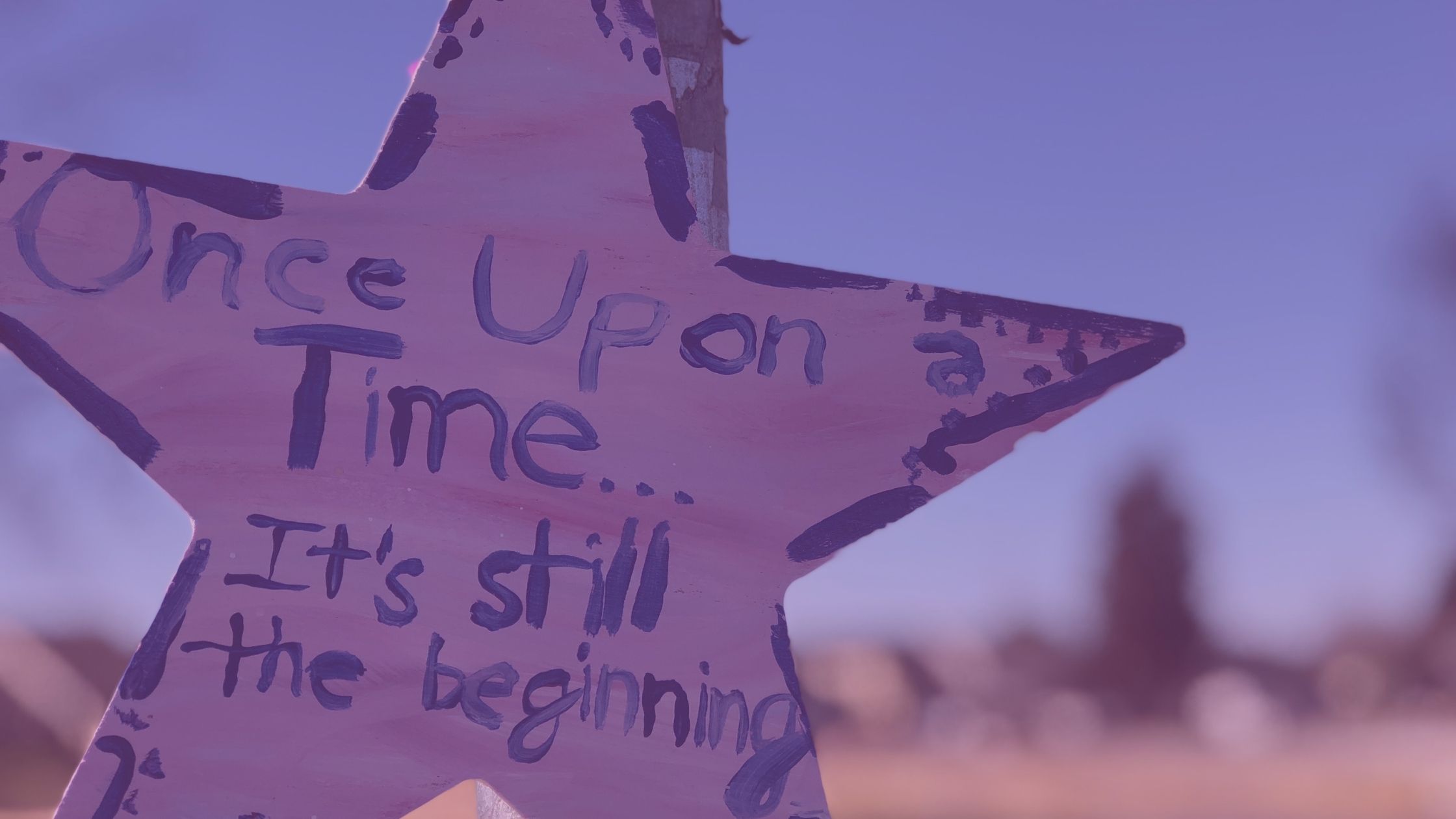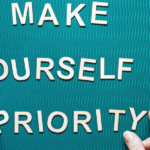There is no question about it: people are hurting. In today’s always-on bad-news onslaught, it can seem like there are more reasons to hurt than hang on. War, COVID-19, climate change, inflation, social isolation, racial injustice, the anxiety caused by constant uncertainty… any one of these would be enough to take a toll. Collectively, they can be spirit-crushing.
And yet… as with any affliction, once the cause is known, the cure is never far behind. Stars of HOPE was founded on the mission to promote emotional recovery in the aftermath of acute crises. Whether the tragedy is natural or human-caused, we have found that positive intervention—the simple act of healing ourselves by healing others—can ease the adverse effects of post-traumatic injury and speed recovery and reintegration. We believe the same therapy can be just as effective in a time of constant, chronic crisis.
If you feel exhausted, tapped, numb, then you are not alone. By learning the signs of emotional exhaustion, you can not only heal… you can be the cause of healing in others.
The Truth About “Empathy Deficit”
Although doomscrolling started trending after the outbreak of COVID-19, its concept is nothing new. During the 1970s, social scientists observed that viewers constantly exposed to violent news tended to remain anxious even after they turned off the TV. What was then called “Mean World Syndrome”—the belief that the world is more dangerous than it is—showed that too much exposure to bad news can be emotionally damaging.
We now spend a lot more time exposed to terrible news today than we did fifty years ago, and the tone of media reports has only gotten worse. According to one study, headlines with a negative bias captured 63% more attention than positive ones. We aren’t just getting more bad news—we’re having a more challenging time focusing on anything else.
Human beings are hard-wired to react to bad news: it’s how we survived the Ice Age and the saber-toothed tiger. And now, our survival instincts are being turned against us.
Ten years ago, psychologist Douglas LaBier coined the term empathy deficit disorder to describe our collective inability to respond to each new crisis, each new survivor, with the compassion and attention they deserve. We can’t feel the same intense empathy for everyone… so we begin to shut off, shut up, and down.

Sure Signs of Shutdown
If this describes you—if you find yourself tuning out the news if you find it hard to manage more than a simple heart emoji in response to a recent tragedy, if you feel that too much is being demanded of you—then all we can say is do not blame yourself. You are not lacking empathy: you are exhausted.
In the same way, if you find you cannot look away—if you remain constantly vigilant, constantly grieving, unable to create healthy boundaries between yourself and the troubles, you are also suffering from emotional exhaustion.
If you catch yourself feeling any of the following, then you are tapped out:
- You feel like you’re disappointing everyone
- It doesn’t feel safe to step away from the screen
- You’re not eating, sleeping, or spending time with people you care about
- It feels like you’re needed everywhere at once
- You tune people out
- Nothing you do seems to get you anywhere
- You feel lost, empty, and zombie-like when you’re not busy
The symptoms manifest differently, but the underlying cause is the same: chronic crisis takes us all to a level of traumatic stress we weren’t meant to deal with.
So how do we repair the damage… in ourselves and others?

Together We Heal
You can’t permanently shut down. Work won’t let you slow down. There’s no taking a break from family. Even so, there are steps you can take right now that will help you and others recover from emotional exhaustion:
#1. Creative Self-Expression: What Makes You Feel More Like Yourself?
A natural response to trauma is to feel disconnected. “I just don’t feel like myself” is how many survivors verbalize the overwhelming numbness that accompanies emotional exhaustion. They’ve lost the things that make them feel connected to themselves and to their community.
Creative self-expression is a way to revitalize that connection. A friend of ours spent months in grief and isolation after partially losing her vision… then decided to create an audio songbook of all her favorite songs in life. This gave her an excuse to call family and friends she hadn’t heard from in years—and another reason to keep singing.
Your chosen medium of self-expression may be stories, paintings, photographs, or simply an arrangement of flowers on the kitchen table. At Stars of HOPE, we create hand-painted wooden stars that reflect the personalities and beliefs of our volunteers. People who take part in these creative exercises often report feeling better afterwards… particularly as they know these messages will reach others who have similar feelings of disconnection.
#2. Being Human: Make a Surprise Connection
A connection does not have to be with another person. It can be with an animal, with your environment, with a work of literature or art, with your higher power, or with yourself. However, we humans are social animals. Our most profoundly healing connections are with each other.
When we say a “surprise” connection, we mean one that breaks the pattern of our expected ways of connecting with each other—one that opens us up to really seeing each other. Let’s say you’re on a particularly dull and wearisome Zoom call. Everyone’s frustrated, nobody wants to be there. Suddenly it’s your turn to speak. Do you say what everyone expects you to say… or do you say something else, something surprising?
Be interested. “What’s that picture on the wall behind you? It’s beautiful.”
Be vulnerable. “I’m so glad that I get to talk to everyone. It’s lonely here.”
Be you. “Do you mind if I pet my cat while we talk? He’s in serious need of a head-scratching.”
Focusing on the other person as a human being can work wonders. It can transform a frustrating customer-service call or a tense exchange on Facebook. It can even forge a connection with people you will never meet.
Imagine waking up on the morning of the worst day of your life and finding that someone else—a total stranger—has left you a note containing the simple words, “You matter.”
Now imagine being the person who left that note.
#3. Positive Intervention: Do the Good You Can
You can’t solve the world’s problems. Even if you devoted yourself entirely to solving one of the world’s problems, you might find yourself overwhelmed.
But there is something good you can do right now. It might be large, it might be small. It might cost a little of your money, your time, or your attention. It might be your life’s work. Every time you hear something bad in the news—something upsetting, something overwhelming—find something small you can do right this moment that makes a very small positive change for someone. Even if it’s simply feeding the squirrels in your front yard.
Try it. And tell us if it didn’t make things just a little bit better in your day.
#4. Don’t Obsess or Shut Down: Engage
If bad news is the cause of emotional exhaustion, we might conclude that shutting everything out will fix things. Too often, it simply leads to isolation.
Rather than shutting out external stimulus, try seeking out something else to engage with.
Engagement could mean calling a friend you haven’t spoken to in months. It could mean a long walk with the phone set to mute. It might mean letting your kid have just one more scoop of ice cream.
Say to yourself: This is worth my complete attention. Even if you don’t think it’s true, even if more important problems are distracting you, say it to yourself until you believe it. Even if what you’re reading or seeing is upsetting, give it complete focus. And notice how those words—this is worth my complete attention—can help you strengthen your ability to shut out whatever threatens to distract or overwhelm you.
#5. Find a Community
At Stars of HOPE, we have created a community of survivors and survivors-by-empathy—people like you who have experienced a natural disaster or human-caused tragedy, people who see bad things in the world and decided to become part of the healing. If this is something you’d like to be part of, we’d love to hear from you. There are so many ways to create hope.





